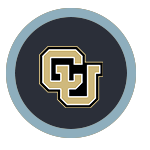The administration at Doherty High places paramount importance in offering a diverse curriculum, tailored to a range of personal passions, interests, and ambitions. Our commitment to this cause is reflected by our offering of over 200 courses, specializing in a plethora of more than 20 Advanced Placement and Duel Enrollement courses.

Advanced Placement is a program run by College Board (the makers of the SAT) that allows you to take courses right in your high school that can earn you college credit and/or qualify you for more advanced classes when you begin college.

CU Succeed offers juniors and seniors the opportunity to get a head start on college by earning college credit while still in high school. CU Succeed students are engaged in rigor equal or comparable to that of the University of Colorado curriculum.
Navigating the waters of course selection can be quite tricky, especially for students with little prior knowledge of college credit options. That is to say, along with the 4 availible programs for redeeming college credit whilst still in high school, each is associated with its own strengths and drawbacks.
All universities are different with reagrds to what they will accept and how they will apply credits to your major. Students and parents must check the colleges the student is interested in.
With that said, most colleges are welcome to the possibility of rewarding you credits for past coursework completion. To verify your enrollment in a course, we recommend saving any relavent coursework collected throughout completion of past classes. An engineering notebook, binder, or portfolio will certify your enrollment and bring extra validity to your candidacy for skipping a course.
Dual Credit Courses, whether they are taken at the high school where the student is enrolled, or at a post-secondary institution, are courses for which the student has been granted permission to earn both high school and college credit. Students must have prior permission to enroll for dual credit and meet the requirements specified by the college. Students are responsible for verifying any college’s acceptance of credits earned as dual credit.
A meeting with a councelor and the student's parents, as well as ample evidence certifying that a student is qualified to take a college-level course, are generally all that's needed to secure their enrollment.
Whereas with CU Succeed and other comparable programs, there is a certain degree of certification inherent, duel enrollment differs through the fact that there is no standard metric by which a college can evaluate the relative significance of grades at a local community college or state school.
For this reason, placement tests are more common for students falling under this critera. To prepare, a student may consider using a test-preparation service such as Accuplacer or the SAT.
Transportation and parking are two other matters entirely when it comes to duel enrollment. Typically, a student must provide their own ride to the desired college or high school.
For this reason, duel enrollment is typically reserved for upperclassmen, who are more likely to have the necessary transportation services availible to them.
Take a more personalized inspection at Doherty High School's curriculum, with interviews from student and staff around the building. Hear first-hand what makes DHS course offerings stand out from other schools in the Colorado Springs area.